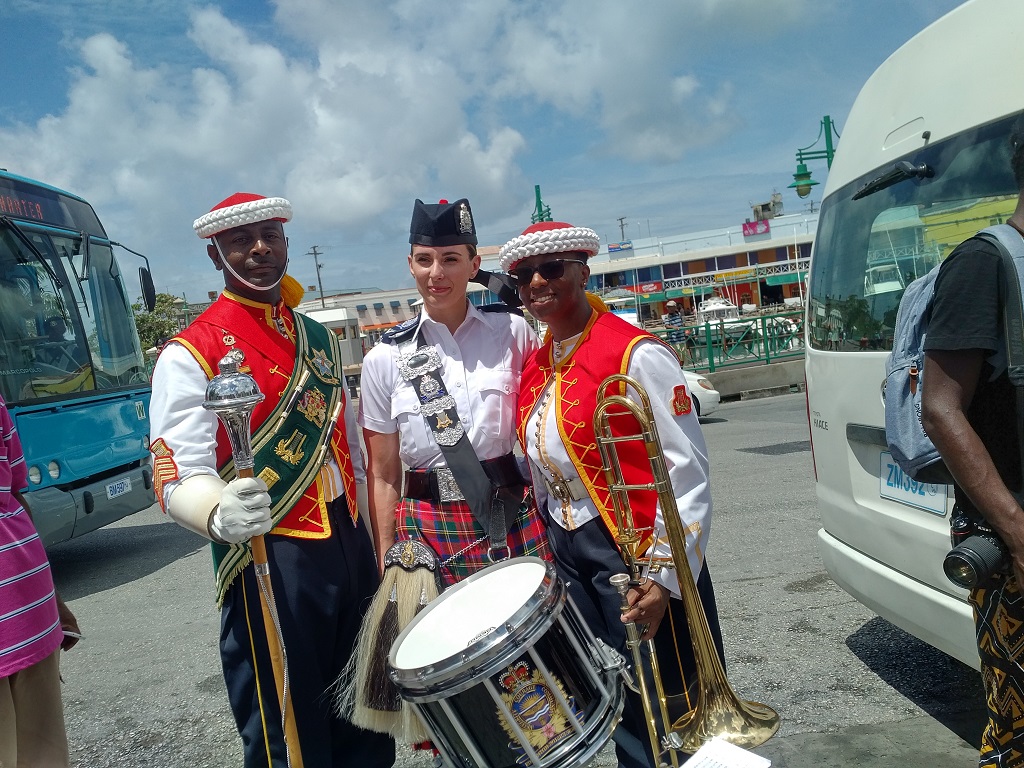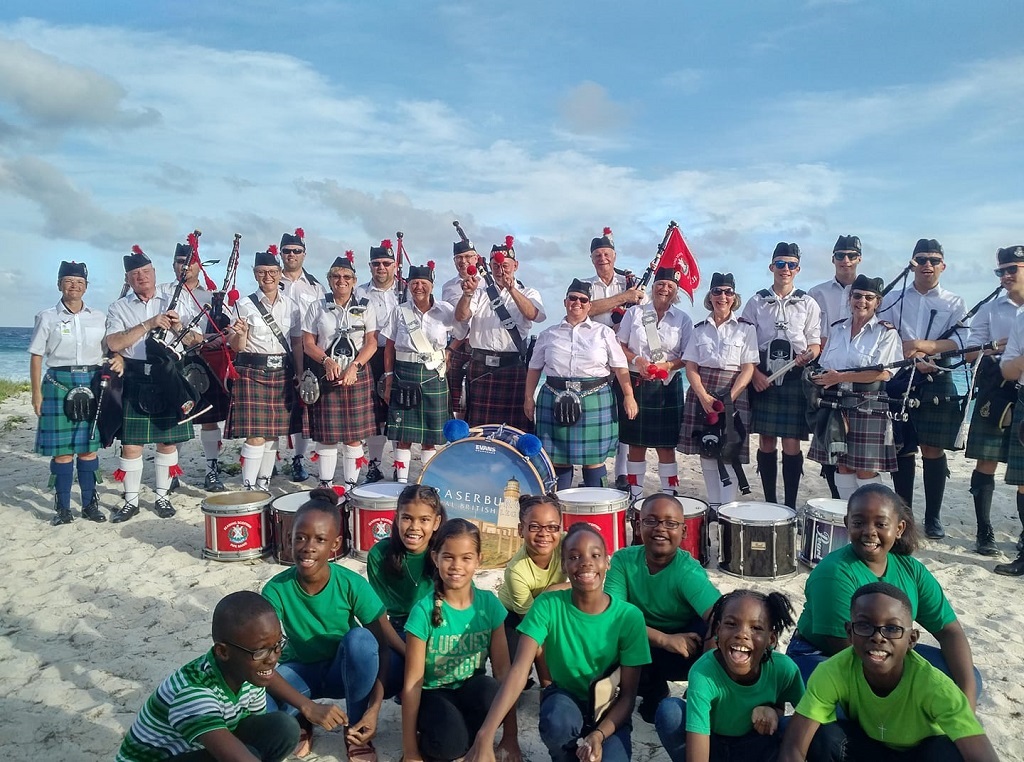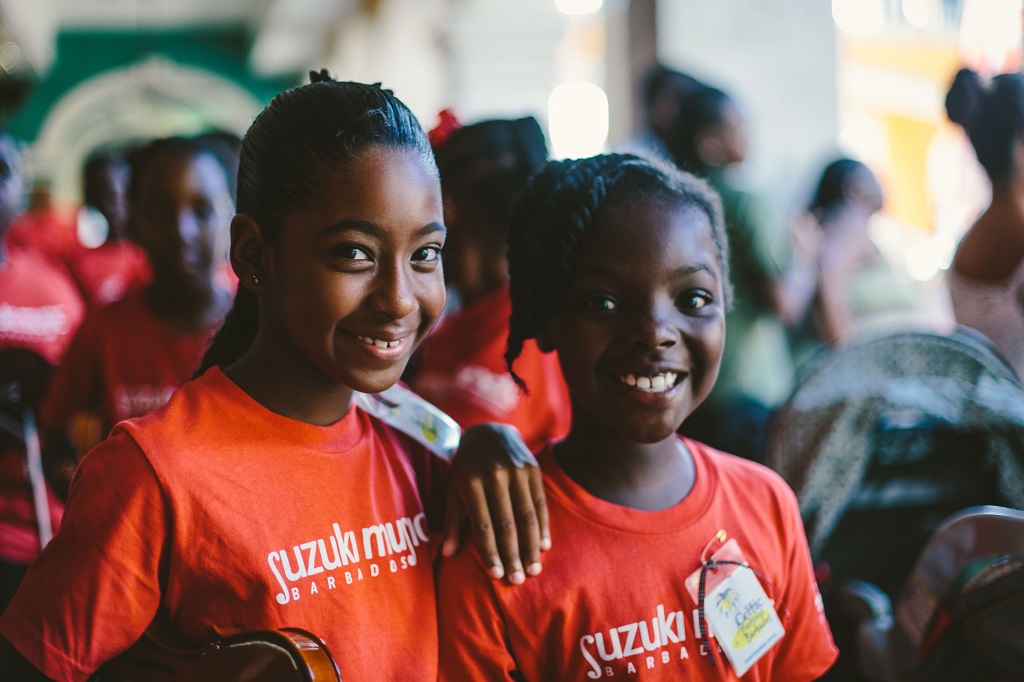
Enjoy the pipes and drums in Barbados
Playing pipes and drums in the tropical heat is quite a unique experience! Especially when you can join in with the local defence marching bands who are used to it. Colourful to say the least, popular too.
Barbados Celtic Festival is an annual event towards the end of May every year – where you can enjoy this experience. It all began in 1996 when a Welsh lady invited her father’s male voice choir to travel to perform. A performance in the Frank Collymore Hall in Bridgetown remembered fondly by many locals and ex pats. In subsequent years, pipers joined in, bands and musicians from Scotland, Ireland and Wales.
In recent years, as the festival expands it now includes an annual street parade where all visiting pipers and drummers can take part, individually joining the “big band”, or with their full pipe bands.
To the delight of local west Indians who line the streets of capital Bridgetown on the Saturday afternoon to enjoy the swirl of the kilts and the pride of the pipers. Folk musicians attending also join in, and the local school children who have learned Gaelic songs and Celtic folk songs in the weeks running up. In recent years we have enjoyed the fiddling talent of Riddell Fiddles from Selkirk, who lead the schools performances too.

Smiles at the Barbados Celtic Festival
The wide ranging programme of events take place all across the island – from the Scotland district in the east – where the first Bajan haggis was created by Edinburgh chef Paul Wedgwood in 2011, using the local black belly sheep and tasting very spicy!
Local schools are introduced to Scottish, Irish and Welsh Gaelic culture through song and dance. It also includes a performance at the SOL Motor Rally “Show”, where rally drivers and their teams from the Caribbean and the Celtic countries gather, and have their vehicles on show ahead of two big races – King of the Hill, during the Celtic Festival, and the SOL Rally the following weekend. The festival pipers are one of the highlights of the Rally show, which is organised by an ex pat Scot.
Some of the best folk talent in Scotland, Ireland, Wales and Nova Scotia has taken to the main stage. Three times BRIT award winner Eddi Reader and her band, the Peatbog Faeries from Skye, the Mackenzie Brothers from Mabou with Seudan and Scottish bagpipe maker Hamish Moore, have all attended. As have fiddler John McCusker, vocalist Heidi Talbot and the Allan Kelly Gang from Ireland. Recently the award winning Fara from Orkney led by Jeana Leslie played together with local musicians and worked up a reggae rendition of the Scottish folk tune Wild Mountain Thyme, and in 2018 we enjoyed a performance from the original Average White Band Scots founders Hamish Stuart and the late Molly Duncan and their band.

Pipers on the boardwalk at the 2019 Barbados Celtic Festival
Director Carol Anderson has long sought another Welsh choir to echo the founding concert in the 1990s. And so in 2019, it was a great pleasure to welcome the Gwalia Singers from Swansea – 44 of them made the trip with their partners and families, and performed in the new Barbados Museum Walled Garden theatre. An outdoor venue, as are so many. The haunting tunes from the Welsh valleys were wonderfully received by the local audience and visitors to the island for the festival. Well kent tunes included “Deliliah” made famous by Sir Tom Jones, but they also sang a couple of local songs to the delight of the audience – including “Beautiful Barbados” .
A final performance of this song went viral on social media when the choir did a “flash mob” singing it at the airport departures hall on their way home. A local attorney caught them on film and was so moved to hear them sing a song from his country he posted the footage on Facebook.
The finale of the Welsh Choir Concert included the Barbados Celtic Festival Pipe Band performance of Amazing Grace with the choir singing behind. The band was made up of a wide range of visitors to the festival, including pupils from the piping classes at Strathallan School, Perthshire Scotland. They were led by their teacher Pipe Major Craig Muirhead. Craig, no stranger to Barbados, who had earlier in the week introduced the local army cadet musicians in the BDF band to the pipes seeking a group who would take on the task of learning the pipes and creating a pipe band within the defence band. Thus leaving a legacy from Barbados Celtic Festival to Barbados.
The school pupils had the opportunity to perform at the school assembly in celebrity musician Rihanna’s old school as part of the festival’s cultural exchange. It was a great experience for young pipers so far from home, and generated considerable interest in their Scottish heritage for the young Bajans.
Scotland has a strong history in Barbados. There are street names like Culloden and Strathclyde, a Scotland District on the rugged east coast and a St Andrews Parish. Many Scots were sent west after the Battle of Culloden to the indentured servitude in the sugar industry in 1748. Their names are listed in the archives in Barbados Museum. You will meet Andrews and Gordons, and encounter family names like Maclean, Grant and Griffiths.

Two Suzuki violin kids smile at the Barbados Celtic Festival
Away from concerts and music, visiting pipers have enjoyed the local scuba diving, great sailing on many of the local catamarans who offer a wonderful cruise up the west coast complete with lunch and drinks on board and the chance to snorkel with the local sea turtles, a day to remember.
Fresh fish at the Friday night “Fish Fry” at Oistins on the south coast is popular, and smaller rum shops offer similar from hot coals around the island on a Friday night. Touring round an island with such diverse scenery – from the sophisticated beaches of the “Platinum” west coast with glorious luxurious hotels to the wind swept wilder Atlantic east coast of the island, which is deserted with its Atlantic breakers and empty beaches, and aptly named Scotland District and St Andrew’s Parish.
Local food includes freshly caught fish – literally “catch of the day” from mahi mahi, to tuna and king fish, pork and beef, with plenty local vegetables including egg plant, tomatoes, sweet potato and avocado. There’s a great collection of fine dining restaurants – Barbados wins awards for its culinary talents – and you can eat street food from the local fish fry or in a rum shop at the other end of the spectrum. Equally tasty but very affordable wash down with the local Banks beer, or an island rum.
The rum made famous by Mount Gay, Barbados the birthplace of rum in 1703, is offered to visitors as rum punch on arrival. They say there are as many little rum shops (equivalent of our pubs) as churches, and there are plenty of those, for all denominations.

Drums at the Barbados Celtic Festival
There is plenty of history to find including St Nicholas Abbey with its own rum distillery up in St Lucy in the north, the Unesco world heritage site at Garrison, with the horse racing track, the Defence Force, an impressive collection of old canons, some carronades made in Falkirk, an important synagogue and most importantly the wonderful local people – the reason why so many people say they return to Barbados many times.
Barbados is easy to get to from the UK and Europe and from America and Canada with daily flights from London Gatwick with British Airways and Virgin Atlantic.
If you are interested to visit or to take part, visit www.barbadoscelticfestival.com or email info@barbadoscelticfestival.com
For further information about Barbados go to www.visitbarbados.org
TAGS

